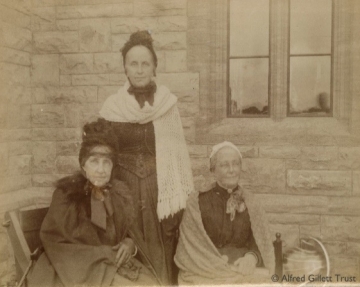The Priestman sisters
The full resource is FREE to all registered users of the website
If you are not already registered you can sign up for FREE website access to download the full resource.

- Anna 1828–1914; Mary 1830–1914
- Occupation: social campaigners
- Claims to fame: formed the WLA in Bristol
In the north-east of England
Sisters Anna and Mary Priestman were born in Newcastle. Their family were Quakers and active in social reform, such as anti-slavery movements. As girls, they helped their mother by sewing items to sell at campaign fundraising events. They signed the 1866 women’s suffrage petition before moving to Bristol in 1870. There they joined the committee of the West of England branch of the National Society for Women’s Suffrage.
In the south-west of England
Anna and Mary believed in ‘passive resistance’, refusing to pay their taxes as a protest against women’s exclusion from the franchise. They were fined and had some property seized. This form of protest would be used again 40 years later by the Women's Tax Resistance League. In 1881, Anna and Mary formed the Women’s Liberal Association of Bristol, the first to ‘test’ Liberal Party candidates on their support for women’s suffrage. Liberal candidates relied on WLAs to help get them elected, through leafleting or holding events. The Priestman sisters questioned why women should help Liberal candidates who were not prepared to support votes for women, and believed that poverty was a direct result of not being allowed to vote. Anna formed the Union of Practical Suffragists in 1896. They supported the WSPU, but stopped when its methods became violent. Anna and Mary remained close and died in 1914, just five days apart.
Glossary
- Quaker – a branch of Christianity that often believes in social justice and pacifism
- Political candidates – people trying to be elected to positions of power, such as councillors and MPs
Questions
- Why was passive resistance important to the suffrage cause?
- Was their active questioning of people’s actions helpful to the suffrage cause?
- Do you think that their religious beliefs made a difference to the type of suffragists that they were?
Useful resources
- Elizabeth Crawford, The Women’s Suffrage Movement: a reference guide, 1866–1928 (Routledge, 1999)
- E. Malos, Bristol’s Other History (Bristol Broadsides, 1983)
